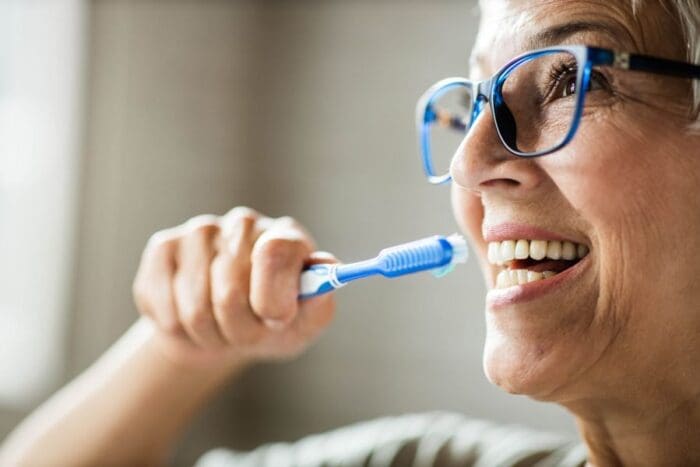Dental implants can resolve many issues in the wake of tooth loss by restoring the appearance, health, and function of your smile. Though the benefits of these fixtures are clear, some people may worry about introducing long-lasting dental work to their smiles.
One of the advantages of choosing implants to replace missing teeth is that they do not require extra cleaning or maintenance, unlike removable dentures. However, oral hygiene is still crucial to the success of this dental treatment.
You can ensure you stick to proper oral hygiene when you know more about the care your implants need to function as well as they should. Find tips from your dentist that will maximize oral hygiene and your health after dental implant treatment when you read on.

Maintain a Consistent Oral Hygiene Schedule
Oral hygiene refers to the practice of cleaning your teeth and the rest of your mouth. You must brush your teeth twice a day, morning and evening, and floss daily. This ensures that you remove plaque, food particles, and other residues that collect on your teeth throughout your day.
If you skip part of your oral hygiene routine, then these harmful residues will remain on your teeth, where they can breed bacteria and erode your dental structure. Then your weakened teeth could decay or otherwise deteriorate.
While the prosthetic teeth of dental implants will not decay, their fit could suffer if you contract gum disease or another dental issue. Ill-fitting implants could face a greater risk of infection and failure. So sticking to a thorough and consistent oral hygiene regimen is key.
When you first receive implants, you will need to be gentle around the healing surgical site. Follow your dentist’s aftercare instructions to care for your teeth and practice good oral hygiene that will not harm your recovery.
Choose Implant-Friendly Oral Hygiene Supplies
Dental implants will not require extra cleaning beyond what you already do for the rest of your smile. But you can enhance your oral cleanliness by considering which oral hygiene tools can best clean around dental implants.
Choose a soft-bristled toothbrush that will not scratch your prosthetic teeth. While traditional string floss can clean between your teeth well, you might benefit from using a water flosser. This device can feature specialized tips designed to clean around implants and other dental fixtures for an enhanced cleaning experience.
Mouthwash can give oral hygiene a boost, but you should consult with your dentist before using this product. Rinsing with mouthwash directly after implant surgery could irritate the healing sites.
Attend Regular Check-Ups at Your Dentist’s Office
At-home oral hygiene is necessary to keep your dental implants, teeth, and gums clean and healthy. But your own efforts will not be enough to maximize oral cleanliness. You must also attend professional teeth cleanings at your dentist’s office.
The dentist can scrape away plaque and tartar that form in hard-to-reach spots in the mouth. This preventive care will keep your implants working and fight other dental problems, preserving your smile.
